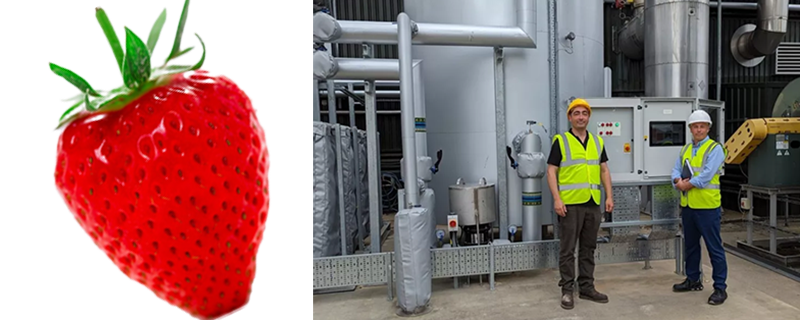Energetic Fruit!
Hain Celestial has invested in upgrading its anaerobic digestion (AD) plant at the facility to more than double the energy produced from waste fruit.
The investment will boost the total green energy generation onsite to 25% of the facility’s total electricity requirements, Hain Celestial noted.
The Histon facility manufactures several Hain Celestial brands, such as Hartley’s jams and jellies, Robertson’s, Frank Cooper’s, and Rose’s marmalades, and Clarks maple syrup.
The initiative is part of Hain’s Global Impact Strategy and will drive its goal to reduce GHG emissions by 42% across its global facilities by 2030.
Anaerobic Digestion Plant
The anaerobic digestion plant processes fruit waste to create biogas, which, in turn, is used to generate electricity via a combined heat and power (CHP) unit.
Benjamin Jeffery, sustainability lead at Hain Celestial, stated, “After seeing the initial positive results and improvements, we are delighted to be installing a second combined heat and power (CHP) system to generate even more sustainably sourced electricity on-site.”
The heat is used to produce hot water on site, creating a ‘closed loop’ energy system with fruit at its core.
‘A Significant Step’
“Histon represents a significant step forward in our commitment to reduce our environmental impact and enhance sustainability across our global operations,” said Chris Jenkins, global head of impact at Hain Celestial.
“Our investment in decarbonisation technologies, including anaerobic digestion, serves as a prime example of our commitment to environmentally sound business practices as we leverage innovative solutions to help power a healthier planet and healthier people,” he added.









Leave a Reply
Want to join the discussion?Feel free to contribute!